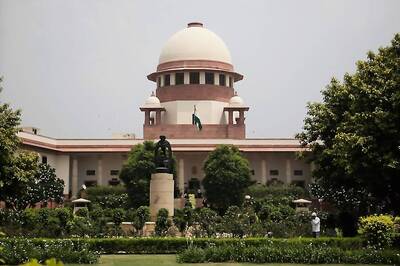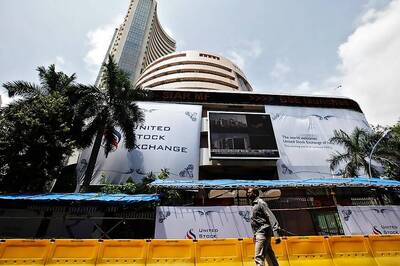
views
2018 has been a landmark year for Hindi movies. It has challenged several established norms and obsolete formulas, opening a window to new, fresher, bolder ideas and encouraged filmmakers to tread where few have thus far.
Not that stars didn’t shine—there was Padmaavat, Sanju and 2.0—but this year was made memorable by stories of everyday people caught in not-so-everyday circumstances. As the year draws to a close, we celebrate the filmmakers fielding these ‘small’ projects that went on to demolish big stereotypes.
In a News18 exclusive, seven directors who stood out this year talk about their films, success and pushing the envelope.
Sriram Raghavan, Andhadhun
A pianist who pretends to be blind to enhance his creative genius witnesses a murder he shouldn’t have, propelling a chain of events as bizarre as it is thrilling.
Powered by Tabu and Ayushmann Khurrana, AndhaDhun was Sriram Raghavan’s idea of fun after having made a film as serious as Badlapur. “Since Badlapur was such an intense story, we wanted to have some fun with this one,” he says.
The film is terrifically nuanced in what it depicts and Raghavan says he never thought of toning it down. “It was difficult to make people see the story initially because it was more in my head than on the script—the ambiguity of the ending, why this guy is pretending to be blind—the premise was difficult for a lot of people to follow.
But I was not sceptical at all. I make my films keeping in mind that the audience is smart. However, I didn’t think AndhaDhun would be so broad based. I thought a few people will get it and enjoy it and a lot of them will get confused but I was happily proved wrong,” he says.
Meghna Gulzar, Raazi
After Filhaal and Talvar, Gulzar’s Raazi cements her position as a filmmaker who can deftly handle difficult subjects with a rare sincerity and intelligence.
With two women—her and Alia Bhatt— at the heart of the project, the film grossed over Rs 100 crore. Grateful for the overwhelming response, Gulzar says, “It just redeems your faith that if your content is good, your intentions are correct and everybody has worked hard with a positive energy, the audience will take it and run with it.”
“I think it is a great time for our cinema right now because the audience is accepting good content and rejecting content that is not up to the mark irrespective of the film’s star-cast,” she adds.
Amar Kaushik, Stree
An indigenous horror-comedy that ingeniously combined traditional folklore with the current socio-political climate and was ably supported by earnest performances—there was nothing to not like in Stree, one of this year’s biggest hits.
The film is also important because it marked Amar Kaushik’s directorial debut and how! He says honest work and right intent helped Stree connect with the audiences.
However, producer Dinesh Vijan is more vocal. Crediting Kaushik for bringing local flavour to the film and keeping it authentic, he says, “Amar played a pivotal role in trying to keep it real and believable, and yet not drop the punches. He made actors comfortable and non-conscious, helping them perform.”
As for the movie’s acclaim, Vijan adds, “The audience is ready. They want something new. The risky films are doing well. The safest thing you can do right now is pick unsafe projects.”
Anubhav Sinha, Mulk
क्या क्या करना पड़ता है फ़िल्में बनाने के लिए। pic.twitter.com/VyMZvdtEX7— Anubhav Sinha (@anubhavsinha) December 3, 2018
A lot can go wrong when you’re making a film on communal bias and terrorism. But Anubhav Sinha handled his material with such sensitivity that audience across faiths sat up and took notice.
“Mulk does not say anything against anybody. If anything at all, it is against prejudice, irrespective of who the people practicing it are,” he says.
On all the love and attention that the film has got, Sinha says, “Mulk has done more to my career than all my other films put together. If a director who has made an important film with Shah Rukh Khan (Ra.One) can be known for another film, I think that’s quite an achievement.”
Nandita Das, Manto
Commercially, it may not have performed as well as the other films listed here, but Manto was just as extraordinary in what it set out to achieve.
Director Nandita Das’s labour of love and perseverance, it depicts the most tumultuous period of Urdu writer Saadat Hasan Manto and his works. Through the film, Das says she “wanted to tell a story that would celebrate Manto’s unadulterated honesty and invoke his spirit in us.”
“Both Firaaq and Manto were not stories that I looked for, the stories that found me. Both the films happened because I felt compelled to tell the stories, because they provided me with a language to respond to what was of deep concern,” she adds.
Siddharth Malhotra, Hichki
Another story that won hearts this year was that of a teacher suffering from Tourette syndrome as told by Siddharth Malhotra. A pleasant surprise at the box office, not just in India but also overseas, especially China, the film has been going places.
Malhotra credits the widespread reception to its honesty. “It was five years of hunger to tell a story that you wanted to tell without hampering it.”
Not many know that Malhotra hunted tirelessly for a producer for five years and got turned down countless number of times only to be backed by one of India’s biggest banners—Yash Raj Films. “Some of the rejections really broke my heart. But I was in love with the script. So I kept returning to it. Aditya Chopra was the first producer to believe in Hichki. He asked me to not worry about the budget and make the film I want to make,” Malhotra says.
Amit Sharma, Badhaai Ho
But this year’s biggest party was at the Kaushiks. The family won a lot of hearts (and money) in how it tackled the unexpected pregnancy of Nakul’s ageing parents.
Elated about the film’s success, director Amit Sharma says, “It is a testimony to the fact that cinema lovers are willing to see different and entertaining content.”
Though he was aware that they were making something new and interesting, he says it was very important to create a good chemistry between the elderly couple, which was played by a fantastic Gajraj Rao and Neena Gupta.
“A simple emotional film like this has lots of subliminal layers where everything from performance, edit, background score to how the scene is shot plays a big role,” he adds.
Follow @News18Movies for more.



















Comments
0 comment